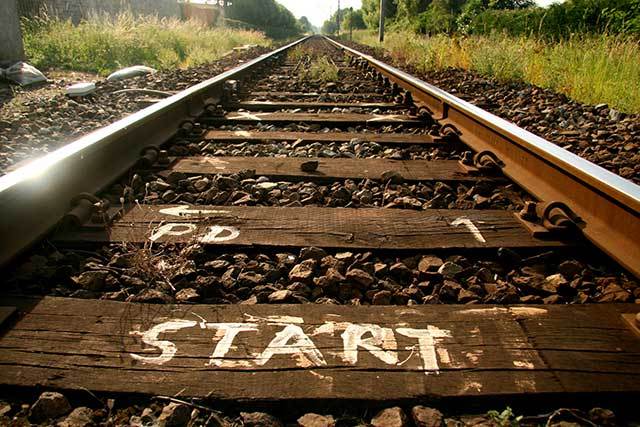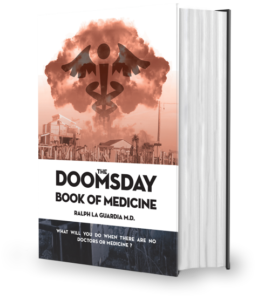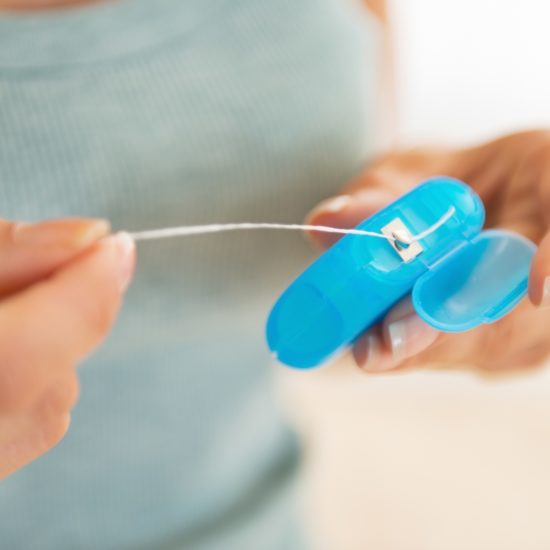
In 2001, I was in my office at work and watched in horror with my colleagues as the second plane hit the towers and our world changed forever. Even hundreds of miles away, it was a devastating catastrophe. Just two short years later, in August of 2003, I was living just west of Cleveland when the Northeast blackout of August 2003 happened.
I was lucky enough to get to the store for ice and batteries before it closed. A security guard at the door stopped me to tell me I had to wait until the previous customer came out before I could go in. They were only letting one customer in at a time. A line of people started to form behind me.
When it was my turn, the guard waved me inside. The lights were out but it was daylight so there was enough light from the windows to see by. The cashier followed me as I got the things I needed and headed for the checkout. She added my items on a battery powered calculator and gave me the total.

This book could have been called The Replacement for The US Healthcare System. Details here
I paid in cash, grateful I had just gotten paid and had cash on me because with the power out, they weren’t accepting anything else. As I came out of the store with my purchases, I heard the guard telling people in the back of the line, now stretched down the sidewalk, that the store was closing.
The power was eventually restored. But that was it for me. I vowed I would never put myself or my children in that kind of situation again. I was going to be more prepared to hunker down for an extended power outage if it happened again. For the first time, I remember thinking “maybe those doomsday preppers aren’t so crazy after all”.
I started reading about prepping and making lists. I have to admit my first instinct was to buy a lot of stuff. But I was living paycheck to paycheck back then, working a full-time job in the next county over and just trying to make ends meet. I had to start small.
I focused on food and I bought a few extra items each time I went to the store. I kept warm clothes and boots in my car in case I broke down. I stocked up on flashlights and batteries and I tried to keep my gas tank full instead of running on fumes. My parents and extended family were all almost an hour away, I had to at least be able to drive to where they were in an emergency.
Despite my best intentions, there were so many mistakes I, like others new to prepping made along the way. As I look back now, here are the 26 things I wish I knew about prepping when I started out:
1. Prepping is an industry
There are people who are in the prepping industry to make money. These people will use scare tactics and hype to sell their products. Preparedness is a smart strategy but don’t let yourself get caught up in the hype. Focus on what you need for your situation and family. Make a plan and stick to it. Remember that even small steps can make a huge difference.
2. It’s Not ALL About Gear
When I first started prepping, my instinct was to buy a whole bunch of gear. I printed off the checklists from the various websites and I started buying the gadgets everyone said were a must have to survive. The problem was, I didn’t know how to use any of that gear. Most of it sat in the closet for over a year. If something had happened, I wouldn’t have known how to use a lot of it.
3. It’s Impossible to Plan for EVERY. SINGLE. DISASTER
No matter how good a prepper you are or how experienced you are, it’s nearly impossible to plan for every type of situation or emergency that could happen. Focus on what is likely in your own area first and foremost. Gradually build your knowledge and hands-on experience because that’s what will help you adapt to whatever situation crops up.
4. Sometimes Old Really is Better
Not everything sold by those in the prepping industry is a quality product. Some of it, especially pre-built bug out bags and first aid kits, are poor quality items stuffed together to get you to pay more. Quality gear does make things easier but only if you have the right skills and knowledge.
When looking for gear and equipment, check your local flea markets, thrift stores, yard or garage sales, and estate sales. Older products are made better, more solid, better quality than new ones and many times you get a much better bang for your buck.
5. Reducing Debt is Critical
To truly prepare for a SHTF event, you’ve got to get out from under any debt you may have. Work to pay off credit cards and save an emergency fund in cash. Start paying for everything with cash and consider taking a course, such as the one by Dave Ramsey, to help you become more financially stable.
6. Hygiene and Sanitation–It’s More Than Comfort
When I first started prepping, I didn’t understand how critical personal hygiene and sanitation practices would be in a SHTF situation. Sure, it would be more comfortable to be able to shower daily and have access to a flush toilet, but I didn’t believe it was life threatening. It didn’t take long to discover that poor hygiene and the shutdown of sanitation services are a main cause of Illness, infection, and other diseases that can then spread quickly through cities after a natural disaster or SHTF situation.
7. Chances Are You’ll Have to Run, Hike, or Fight
During a SHTF event, chances are very good that at some point, you will have to run, hike, or even fight to survive. Fitness, self-defense, and security can be life the lifesaving difference in a SHTF situation. Many people prep for years before realizing how critical it is to prioritize physical fitness and stamina starting today.
8. Companies Lie About Their Products (see #1)
Well not all of them outright lie, but many companies are not above misleading customers into purchasing poor quality products. Advertising is very much an industry designed to get you to part with your hard-earned cash. Test everything yourself, before you need to rely on it to save your life.
9. Disaster Won’t Wait till I’m Safe at Home
The greatest stockpile and security system in the world won’t help if you’re stuck at work and the kids are trapped at school. Know local school evacuation plans and have a backup meeting place that is central for everyone. Practice getting to it from any location where you could be when SHTF because disaster can strike at any time, not just when you’re safe at home.
10. Documenting Identification and Assets is Critical
Following a natural disaster or even during a SHTF event, proving who you are might be not only necessary, but critical to maintaining your freedom. In addition, knowing what you own and being able to show documentation of model numbers and serial numbers or even photos, may be critical to getting reimbursed by insurance companies or other disaster relief organizations.
11. Cabin Fever Makes People Crazy
You and your family may end up holed up in an underground bunker, your basement, or even your own home without video games or television. You could be there for days, weeks, months, or even years with very little outside contact.
Those of you with kids between the ages of four and seventeen, just let that sink in. No matter how well you and your family or group members get along, being cooped up in one place for weeks or months on end can wreak havoc. Plan for this and have board games, card games, books, and other non-electronic entertainment in your safe room or at your bug out location.
12. Bugging Out Isn’t the First Option or the Best
For new preppers, it may seem like everyone is recommending bugging out in case of emergency. But not only is bugging out not the first option, for all but a rare few, it’s not the best option either. Bugging out is extremely dangerous and should be a last resort, only when you are certain that you home is no longer safe.
13. Prepping is a Bottomless Pit
The more you learn about prepping, the more you will begin to realize that prepping can be a bottomless pit. Because it’s impossible to predict with any certainty, what the scenarios are that you may face or what can go wrong, prepping is a never ending and ongoing process. It’s not something you do and forget about. It really is a lifestyle change.
15. Canned Food Weighs a LOT–Look for Lighter Alternatives
Stockpiling cans of food or home canned food in jars is great if you’re able to hunker down and ride out a natural disaster or SHTF event. But this kind of food weights a LOT. You’ll not only need sturdy shelving to store it but you’ll need to look for lightweight food alternatives for your bug out bag in the event you need to bug out.
16. Waiting for Doomsday Can Be Depressing
The more time you spend learning about emergencies, disasters, and potential SHTF events, the easier it is to become overwhelmed and live from a place of continual fear. Don’t let prepping consume your life. Focus on likely events in your area. Constantly waiting and anticipating a doomsday event can be depressing without balance. Don’t forget to enjoy life in the present moment as you prepare for potential disasters.
17. Stockpiling Cash Won’t Save You
While it’s a great idea and a critical necessity to have cash on hand when a disaster happens, stockpiling cash isn’t the only answer. In cases where the power grid is down, cash may quickly become obsolete. Make sure that you are stockpiling physical items and learning skills so that you can use those to barter for items that you may need for your family following a SHTF event.
18. Special Needs Mean Special Planning
Every family or group is different, and your disaster planning must take into account any special needs that might impact your ability to survive during or following a SHTF or other event. There are lots of cookie cutter survival plans available, but make sure you customize your survival plan to accommodate any mobility restrictions, special dietary needs, or medical needs of your family.
19. For Most, Survival Takes a Village or at least a Group
There are many different types of preppers out there. You’ll read a lot of advice from individuals who believe that bugging out to the wilderness alone is the best policy. A few very experienced individuals could actually survive using this lone wolf strategy. But for most people, surviving long-term will mean relying on extended family members, a community, or other trusted survival groups.
20. Talking Too Much Really Can Kill You
Getting prepared is something to be proud of and can provide a sense of relief to know that when SHTF, you’ll be ready. You may be tempted to share your knowledge and new-found lifestyle with other people you know. Choose the people you share information with carefully because talking too much really can kill you if you’re not careful.
When SHTF, that neighbor or cashier at the store you told casually about your stockpile may just decide it’s worth coming to your house to get food and water instead of fighting the hordes of people at the local store.
21. You’ll Need a Plan B, C, and D
No matter how prepared you think you are, there are things that can go wrong in a bug out situation or even during a bug in situation. Your stockpile could be confiscated, your bug out route could be blocked, or someone could find your hidden cache, etc. Know in advance what these things could be and create backup plans so that you can adapt quickly to obstacles and pitfalls.
22. Solar Power Isn’t Just About Lights
When it comes to planning for power during a grid down situation, most people think first about lighting. But solar power can come in handy for a wide range of activities after a SHTF situation including alternative ways to cook, heat, and even stay warm. Make sure your solar power system is designed with all of these activities in mind, so it will be adequate enough to sustain your family for the long-term.
23. You Really Are Going to Use Those School Subjects
One of the most common complaints about our education system is that it teaches things that we won’t use in everyday life. But when you begin to prep, you’ll realize that many of those things you learned in school really will come in handy including:
- Geography
- Physics
- Biology
- Chemistry
- Home economics
- Shop class
- Defensive driving
- Health Education
- Gym or Physical Education
24. Practice Might Not Make You Perfect but It Will Make You Faster
One of the things that is important to realize about disaster situations is that many times it’s acting quickly that can give you an edge over others and in some cases, save your life. This is why you’ll hear some people emphasizing that you get hands-on practice using the skills that you are learning or running evacuation or bug out drills. The first instinct for most people is to panic, emotions will run high, and everyone in your group may not be thinking clearly when disaster hits.
There are also places to avoid going when SHTF so you don’t become a target or get caught up in a horde of desperate or violent people. The more you’ve planned out and actually practiced what to do in specific situations, the more likely it is that your group will act on instinct and be able to take action quickly.
25. A Plan and a Budget Helps Keep You Sane
The prepping lifestyle is never-ending, and it can be overwhelming. It’s very easy to lose focus or get taken in by the latest “prepping trend”. If you have an overall plan and a budget for your prepping, it can help you stay focused and keep your sanity.
Unfortunately, there’s just no one size fits all way to prepare for emergencies, disasters, or a SHTF event. And even when you do plan, you can be almost certain that something or maybe several things won’t go as planned.
But prepping is a great strategy that can certainly give you an edge in a bad situation. It’s definitely worth it. As a much more experienced prepper now than I was several years ago, I hope some of these 25 things I wish I knew about prepping when I started will help you avoid some of these and other common mistakes preppers make.
Other self-sufficiency and preparedness solutions recommended for you:
The Lost Ways (The vital self-sufficiency lessons our great grand-fathers left us)
Survival MD (Knowledge to survive any medical crisis situation)
Backyard Liberty (Liberal’s hidden agenda: more than just your guns…)
Alive After the Fall (Build yourself the only unlimited water source you’ll ever need)
The Lost ways II (4 Important Forgotten Skills used by our Ancestors that can help you in any crisis)
The Patriot Privacy Kit (Secure your privacy in just 10 simple steps)




















